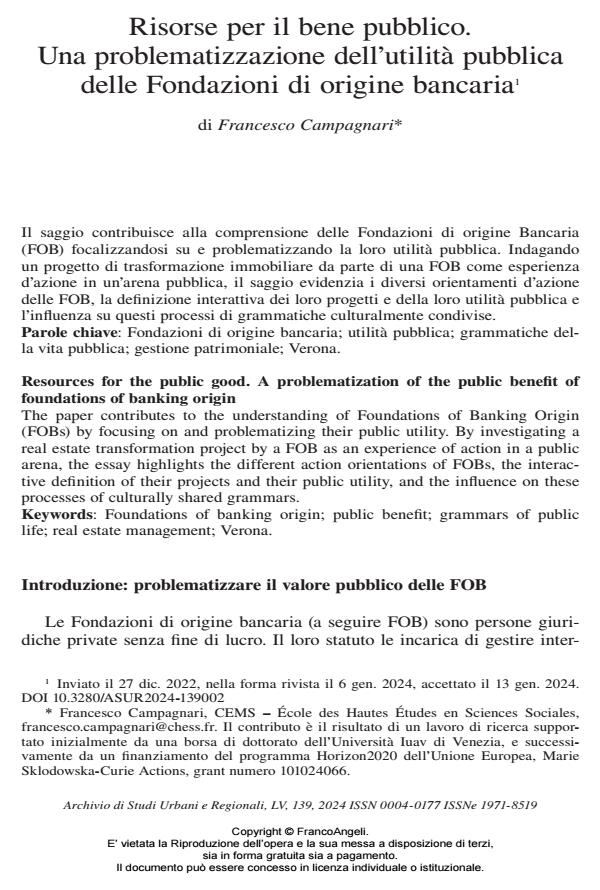Risorse per il bene pubblico. Una problematizzazione dell’utilità pubblica delle Fondazioni di origine bancaria
Titolo Rivista ARCHIVIO DI STUDI URBANI E REGIONALI
Autori/Curatori Francesco Campagnari
Anno di pubblicazione 2024 Fascicolo 2024/139
Lingua Italiano Numero pagine 23 P. 24-36 Dimensione file 143 KB
DOI 10.3280/ASUR2024-139002
Il DOI è il codice a barre della proprietà intellettuale: per saperne di più
clicca qui
Qui sotto puoi vedere in anteprima la prima pagina di questo articolo.
Se questo articolo ti interessa, lo puoi acquistare (e scaricare in formato pdf) seguendo le facili indicazioni per acquistare il download credit. Acquista Download Credits per scaricare questo Articolo in formato PDF

FrancoAngeli è membro della Publishers International Linking Association, Inc (PILA), associazione indipendente e non profit per facilitare (attraverso i servizi tecnologici implementati da CrossRef.org) l’accesso degli studiosi ai contenuti digitali nelle pubblicazioni professionali e scientifiche.
Il saggio contribuisce alla comprensione delle Fondazioni di origine Bancaria (FOB) focalizzandosi su e problematizzando la loro utilità pubblica. Indagando un progetto di trasformazione immobiliare da parte di una FOB come esperienza d’azione in un’arena pubblica, il saggio evidenzia i diversi orientamenti d’azione delle FOB, la definizione interattiva dei loro progetti e della loro utilità pubblica e l’influenza su questi processi di grammatiche culturalmente condivise.
Parole chiave:Fondazioni di origine bancaria; utilità pubblica; grammatiche della vita pubblica; gestione patrimoniale; Verona.
Francesco Campagnari, Risorse per il bene pubblico. Una problematizzazione dell’utilità pubblica delle Fondazioni di origine bancaria in "ARCHIVIO DI STUDI URBANI E REGIONALI" 139/2024, pp 24-36, DOI: 10.3280/ASUR2024-139002